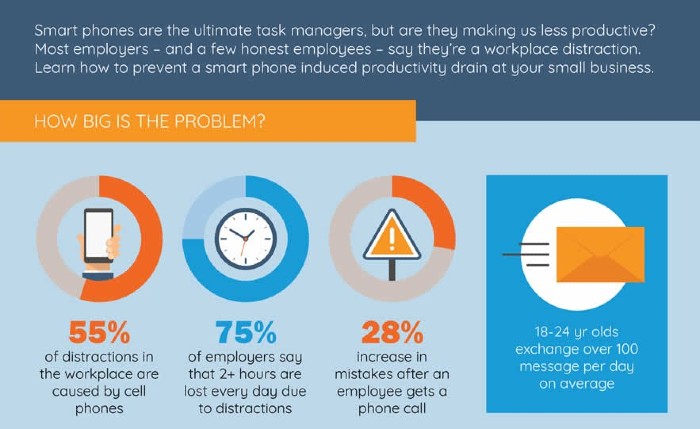Worldwide IT enterprise software spending was around $500 billion in 2020 and is expected to increase to over $550 billion by 2022. Software developers are in demand worldwide, but there is still a lot of competition for the top roles. So, it is essential to stand out.
Typically, software developers analyze customer needs and then develop and test software to meet those requirements. But, it is also vital for software developers to meet the needs and requirements of their co-workers. This doesn’t just mean writing code, but also engaging in meaningful interactions and forming strong professional relationships.
That element of a developer’s professional life requires a range of soft skills. In this article, we will be exploring the most important soft skills that can make you an even better software developer.
1. Communication
Software developers can often spend hours working alone in the same environment and on one task. But, having excellent communication skills is still necessary because you are very rarely coding the whole system on your own. Aside from other developers, you also have to coordinate with a variety of managers and other team members.
Communication can be especially challenging when you add in the remote work factor. The best thing to do is set terms and define expectations early on in the project timeline. This can include asking people how they want to be spoken to and explaining your own boundaries. Remote work can often overstep boundaries, especially if you work late into the night and your team members do not.
The key to efficient communication is listening. Software developers are often in a situation where only they know how to fix something or why someone else’s idea is unfeasible. It can often come off as patronizing if you immediately dismiss that person’s thought. So, practice good listening, eye contact, and ensure that you thoroughly explain your point of view in a way everyone will understand.
Also, don’t be shy to suggest better communication tools your company can use to improve. You are a software developer, after all. For example, suggesting a way to improve your company’s conference calling services or software workflows can be beneficial for all the employees in the long run.
2. Collaboration and teamwork
There is no getting away from working in a team as a software developer. Whether it’s frontend, backend, full stack, or DevOps developers, every single role is a crucial piece of the company’s puzzle, and you have to get along. Over 85% of company executives and employees state that lack of teamwork was a primary reason for the project failure.
Teamwork shouldn’t just be for the greater good of the company. In fact, over 50% of employees believe that having a collaborative environment and a good support network of professionals is what made them stay at the company.
Again, similar to communication, good teamwork is created on a foundation of good team building that happens before the project starts. Of course, you might not be in a position to organize a team building event, but many companies offer these types of activities. Research shows that socializing can improve communication and collaboration by 50%. So, if they’re happening, then it wouldn’t be a bad idea to take part.
Teamwork doesn’t mean agreeing with everyone about everything. In fact, differing opinions can be what make companies truly successful. The idea of teamwork is finding a balance and using your soft and hard skills to make the project as enjoyable and successful as possible for every member of the team.
3. Time management and organization
Working under pressure and still meeting deadlines is pretty much the life of a good software developer. Team leaders want accurate estimates of when work is going to be completed. This can often be difficult when the average worker receives around eight disruptions every single hour! So, it is crucial that you have a time management strategy.

Consider this scenario. Let’s say you were assigned to develop some communication applications similar to Discord. The Pomodoro Technique would be a great way for you to organize your work schedule. It works by dividing your day into 25 minute segments and taking a 5 minute break between each one.
For example, the first 25 minutes could involve researching Discord third party apps, the next segment could be devising a plan, the third segment could be spent coding, and so on. The main benefit is that it prevents developer burnout and multitasking because it allows you to focus on one task at a time.
The Pomodoro Technique is great for allocating when you’ll do tasks, but it is also vital to ensure the tasks that you’re doing are actually meaningful. Research shows that the average employee spends 80% of the workday carrying out invaluable tasks. So, the question on your mind should always be, “Am I spending my time wisely?”.
For example, low code solutions and reusing existing code are great ways for software developers to save time. This will give you more time to work on far more innovative and engaging tasks.
4. Emotional intelligence
Having empathy and emotional intelligence (EI) is all about being able to put yourself in someone else’s position and thinking, “would this be how I want to be treated?”. Statistics show that over 35% of company executives believe that good emotional intelligence will become a requirement in the workplace by 2022.
Empathy is especially important for software developers because your tasks can often be alien to other team members. So, you need to be aware that not everyone understands your jargon or what it takes to complete a programming task.
The biggest problems arise when team members are not aware of the scope of their request. They might ask you to develop some data quality software by lunchtime in time for the afternoon meeting. Of course, you know this isn’t possible. But, the key here is to explain your point of view patiently without making them feel stupid or patronized.
5. Owning up to errors
Mistakes are an inevitable part of the workplace. In fact, being allowed to make mistakes is what fosters new and innovative ideas. But, sometimes, these mistakes can be impactful and, if left unchecked, can be very costly for a company.
An environment where no one is accountable for anything will adversely affect your employee experience. So, it is vital that you create a work environment that provides feedback. This means publicly praising people for the work they have done, privately providing constructive criticism, and allowing people to do the same to you.
The reason for this is that when people are receiving positive feedback, then they are more likely to own up to errors. Individuals shy away from accountability when they already feel under-appreciated and devalued.
6. Problem solving and creativity
Critical thinking and coming up with a creative solution to a software related problem is probably the main reason the company hired you. It may seem like problem solving only requires a combination of hard skills and experience. But, excellent problem solving and creativity are vital soft skills.
The reason for this is that problems shouldn’t and often aren’t solved by one person. In fact, statistics show that groups that have had some training in creativity and problem solving produce 350% more ideas than a group that hasn’t, and the ideas that they produce are over 400% more original.
Being creative is key to solving a problem. The best way to increase creativity isn’t to encourage it but to discourage any obstacles. This means preventing pessimism and egotism, and allowing people to make mistakes. So, it is crucial as a software developer to motivate and encourage yourself to be more creative, but most importantly, do not discourage others.
7. People skills and management
Having great people skills requires an amalgamation of all the points mentioned above. But, it also requires another crucial element. Treating people as individuals. This goes beyond remembering their names. It is about understanding how each person responds to different triggers and stimuli, and finding out how to get the best out of all of your team members.
The reason this is so important is because understanding and catering to the people you work with will help to increase employee engagement. Research shows that high employee engagement can increase productivity and profitability by over 20% and decrease absenteeism by over 40%.
It is important for you to know and value everyone’s skills and weaknesses and, more importantly, be self-aware enough to know your own. This information is crucial when, for example, you’re debugging another member’s code or even leading a team and delegating tasks.
To sum up
The Oscar winning film “The Social Network” painted software developers to be individuals who strap into a coding session for six days straight and interact with absolutely no one. In reality, this is hardly ever the case. It is crucial that you understand how to work in a team and not just because it’s necessary, but because it can drastically improve your productivity and overall enjoyment at work.
Communication, teamwork, time management, emotional intelligence, accountability, problem solving, and people skills are the primary soft skills you need to develop to ensure that you are a great asset to your company.
About the author:
Victorio is the Associate SEO Director at RingCentral, a global leader in cloud-based communications and collaboration solutions. He has over 13 years of extensive involvement on web and digital operations with diverse experience as web engineer, product manager, and digital marketing strategist.
Filestack is a dynamic team dedicated to revolutionizing file uploads and management for web and mobile applications. Our user-friendly API seamlessly integrates with major cloud services, offering developers a reliable and efficient file handling experience.
Read More →
